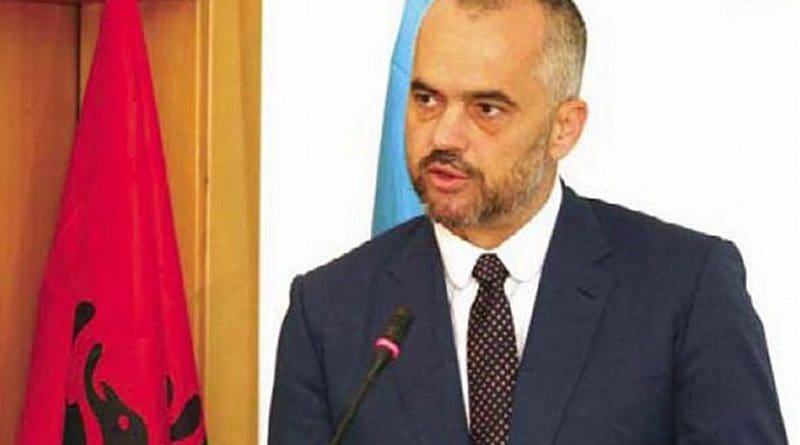Albanian PM Sparks Outrage, Saying COVID-19 Patients Can’t Vote
By Fjori Sinoruka
Albanian Socialist Prime Minister Edi Rama has outraged human rights organisations with a recent claim that patients with COVID-19 should “continue to stay at home” for the April 25 elections and not try to vote.
“We will do the same as all other countries did for those who tested positive … this is not a question, they must stay at home and self-quarantine,” Rama told a press conference on Tuesday.
Erida Skëndaj, head of the Albanian Helsinki Committee for Human Rights, told BIRN on Friday that the PM was violating basic human rights and going against the constitution, which says all citizens must be allowed to vote, sick or not.
Skëndaj said the Albanian constitiution allows that “in exceptional cases … for example, there may be restrictions on the right to vote of citizens serving sentences of imprisonment.
“But … citizens infected with COVID in a free state and who are not in these categories, explicitly defined in the constitution, cannot be restricted to vote by law,” Skëndaj added.
Experts also highlighted that countries in the region, such as Kosovo, Montenegro and Northern Macedonia, allowed this right to citizens infected with COVID in the last elections held in them.
Albi Çela, founder of the Rule of Law Albania platform, also told BIRN that stopping people infected with COVID from voting would be unconstitutional and unjustifiable.
“The constitution explicitly provides that the only people excempted from the right to vote are those declared mentally incompetent by a final court ruling, and in some circumstances, those serving prison.
“Every other Albanian citizen has the right to vote, and the government has a positive obligation to ensure it. This would also be in violation of the European Convention on Human Rights, which requires state parties to treat citizens equally in exercising their right to vote,” he told BIRN.
He added that Rama’s statement that Albania was only following the example of other countries was misleading.
“Almost every country that has held elections so far allowed people infected with the virus to vote. We don’t need to look any further than our neighbouring countries – Kosovo, Montenegro and North Macedonia,” he told BIRN.
Currently, Albania has about 35,000 active cases of COVID-19 and 609 sufferers are hospitalized. The rate of new cases and deaths has increased lately, with about 1,000 new cases a day during February.
Central Election Commission head Ilirjan Celibashi said he cannot on his own ensure COVID-19 sufferers can vote because this would require a government decision, or legal changes in parliament. “Basically, this is an issue that is outside the CEC in terms of rules,” he said.
But Afrim Krasniqi, head of the Institute for Political Studies in Albania, a think tank, told BIRN that the Institute had raised the issue with the CEC and the President, calling for a gaurantee that all citizens, including those who are ill or in quarantine due to COVID, can vote.
“The right to health and the right to vote are constitutional rights, guaranteed by international norms accepted by Albania, so no institution can restrict them or moreover deny them,” he told BIRN.
“Currently we have about 35,000 [COVID] citizens, who if they vote would elect 3 to 4 deputies, a number that could be decisive for the creation of the future majority,” he pointed out.
“If we take into account individuals who may have travel problems on election day, or who will be conscripts, etc., the number goes higher. Their exclusion a priori leads to a deviation in the standard of representation, and could be seen as an electoral tactic,” he said.
“The experiences of about 20 countries that held elections during 2020-2021, including the US, but also the experience of neighbouring countries like Kosovo and Northern Macedonia, should be a lesson for … Albania,” he added.

